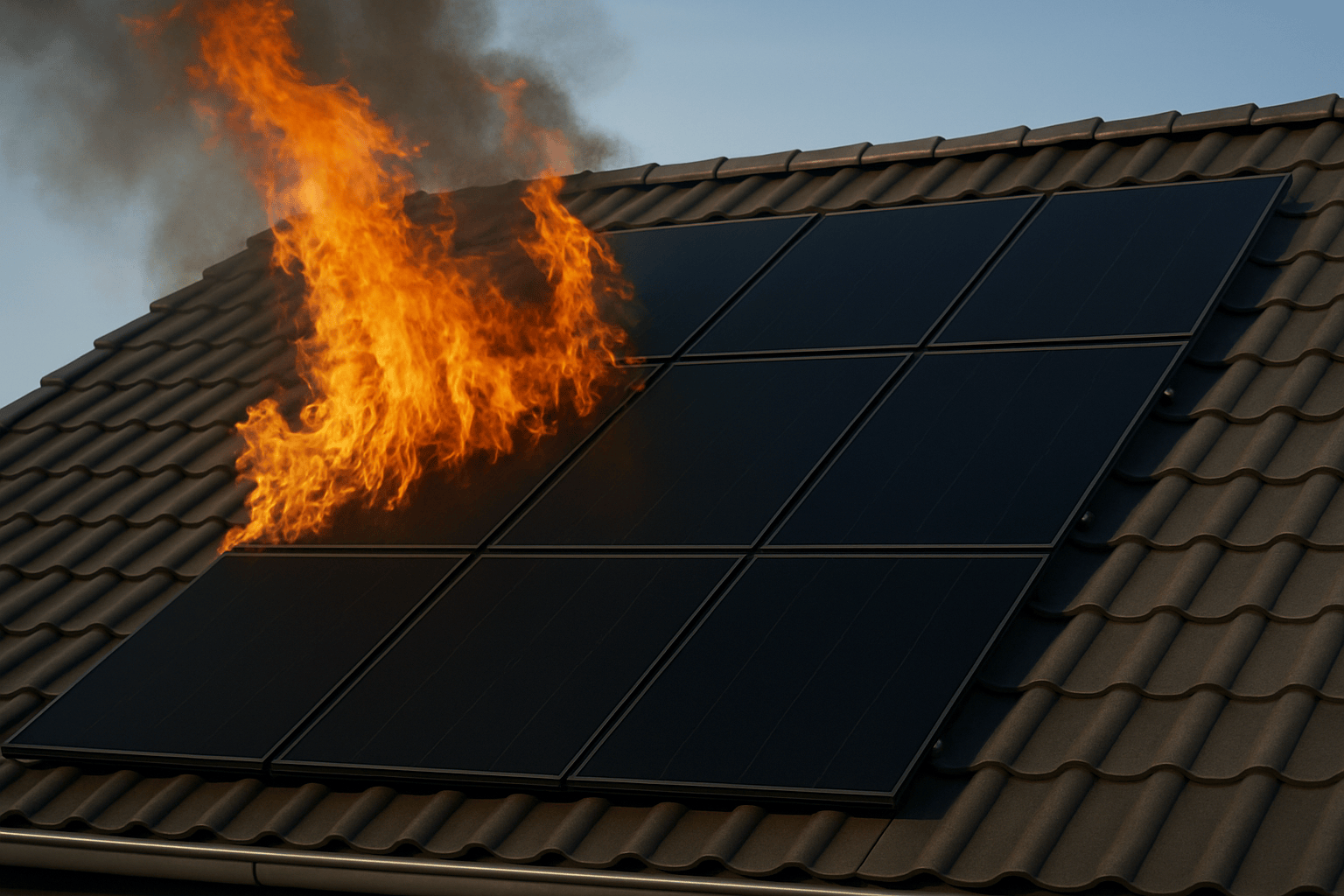In solar installations, two technical features are becoming increasingly relevant: high fire safety classification and the use of PFAS-free materials. These aspects contribute to greater system safety, environmental responsibility, and alignment with future regulations.
But what exactly do terms like Fire Class A and PFAS-free mean – and why do they matter for planners, installers, and customers?
Fire Protection – The Case for Fire Class A

The IEC61730-2 standard defines safety testing procedures for photovoltaic modules, including how they perform in the event of fire. Modules with a Fire Class A rating meet the highest level of fire resistance, offering significantly better protection than those rated with Fire Class C.
This difference can play a key role in real-world applications:
- Fire Class A modules limit flame spread more effectively
- They are more suitable for buildings with higher fire protection requirements, such as industrial facilities or high-rises
- Some insurance providers offer favorable terms for projects using Fire Class A modules
Overall, the classification helps ensure greater safety and system reliability, particularly in sensitive or regulated environments.
PFAS-Free – What It Means and Why It Matters

PFAS (Per- and Polyfluorinated Alkyl Substances) are a group of industrial chemicals widely used for their water- and grease-repellent properties. They’re found in products like non-stick cookware, outdoor gear, food packaging – and occasionally in manufacturing processes for solar components.
However, PFAS are also known as “forever chemicals” because they do not degrade naturally. They accumulate in ecosystems and human bodies, raising health and environmental concerns.
Why PFAS-Free makes a difference:
- Reduces exposure to potentially harmful substances
- Prevents contamination of soil and water resources
- Supports sustainability goals through cleaner production
- Anticipates future regulations, especially in Europe, where restrictions or bans are already on the way
By using PFAS-free products, stakeholders contribute to a more responsible and future-proof solar industry.
Why It Matters for Your Projects
When selecting PV modules, safety and sustainability are no longer optional extras—they’re becoming essential. Choosing modules that are both Fire Class A certified and free of PFAS offers multiple advantages:
- Safer installations for buildings and people
- Easier approval in regulated areas or special building types
- Compliance with evolving environmental laws
- Better long-term performance and reduced liability
These features bring real-world benefits across planning, execution, and system lifetime.
What to Look for
Several module manufacturers already offer products that meet these criteria. At IBC SOLAR, for example, selected modules in our portfolio – including the LS-TA2 series – combine Fire Class A certification and PFAS-free design to meet today’s and tomorrow’s requirements.
Want to know more?
Browse modules with advanced fire safety and PFAS-free design in our online shop (https://shop.ibc-solar.de/products/en/shop/PV/pv_modules/ibc_modules/?1539=35815#listfilter) or reach out to our team with your inquiries: Sales-International@ibc-solar.com.